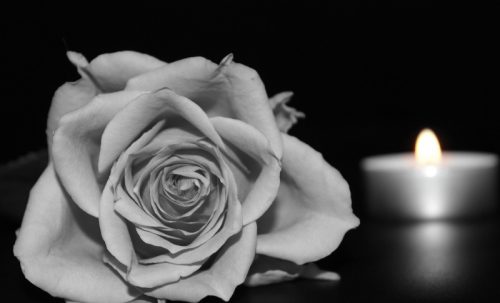In the inconsistencies of life, one thing is for sure – death. At some point, we will experience losing someone who shares an impact on our existence, most likely, a loved one or a spouse perhaps. The process of grieving will require a manageable behavior because if we don’t go through it the healthy way, it will cause a long-term adverse effect on our overall wellbeing and in the different relationships that we make along the way.

“A stressful change in life patterns can trigger a depressive episode. Such stressful events may include a serious loss, a difficult relationship, trauma, or financial problems.” Ben Martin, Psy.D. explains. When we are in a state of grief, we’re doing things that affect everything around us. Most of the time, it doesn’t allow us to process productively due to the emotional struggles we are dealing with, and that makes us vulnerable to several psychological and mental health issues. So is there a way that teaches us about how we can properly execute the process of grieving? The truth is, there’s none.

“Sometimes people seem to deny, to be in a daze, but these are all coping mechanisms.” Curt Drennen, PsyD, RN said. When you experience the so-called dark and empty room where you picture yourself surrounded with negativity and there’s nothing else around you that’s worth living, then that’s the time that you should consider helping yourself. The process of grief doesn’t only follow the stages of healing because it also requires a will that’s coming from you. Your sense of purpose will change all your perception of how you should consider your life’s worth.
It All Depends On You
The problem with grief can come from the idea of not allowing yourself to sense the emotions that you have to feel. In that sense, being in denial can create a lot of complications and will hinder you from reaching the stage of recovery. You might see it as a positive approach so you can show people how tough you are, but your reactions will soon take it differently. You will not only make yourself weak but also make it impossible for you to move on. Telling people that you’re not affected by showing them your strong side will only make it worse. You might not get the help you need because you are trying to cover it up at some point. The process of recovery will not be healthy.

There are no rules when it comes to grief, and the more you think about recovering from losing the one you love, the harder it will get depending on your tolerance for sadness and pain. Also, there’s no required time frame to whether you should or should not cope with the emotional struggle. There will be a mixture of emotions such as guilt and relief at the same time. Therefore, you have to decide whether you want to prolong the devastation or choose to be happy instead. As Lisa S. Larsen, PsyD said, “You can open up and be honest about how they feel, and let go of the baggage from your horrible experience.”
With all that said, your way to recovery has something to do with your own choice. You have to realize that losing the one you love doesn’t mean the end of everything. In some instances, it could be the start of a new journey that you’ll have to face for you to become stronger and capable of dealing with harsh experiences in life. Because in the end no one can make you feel better but yourself.